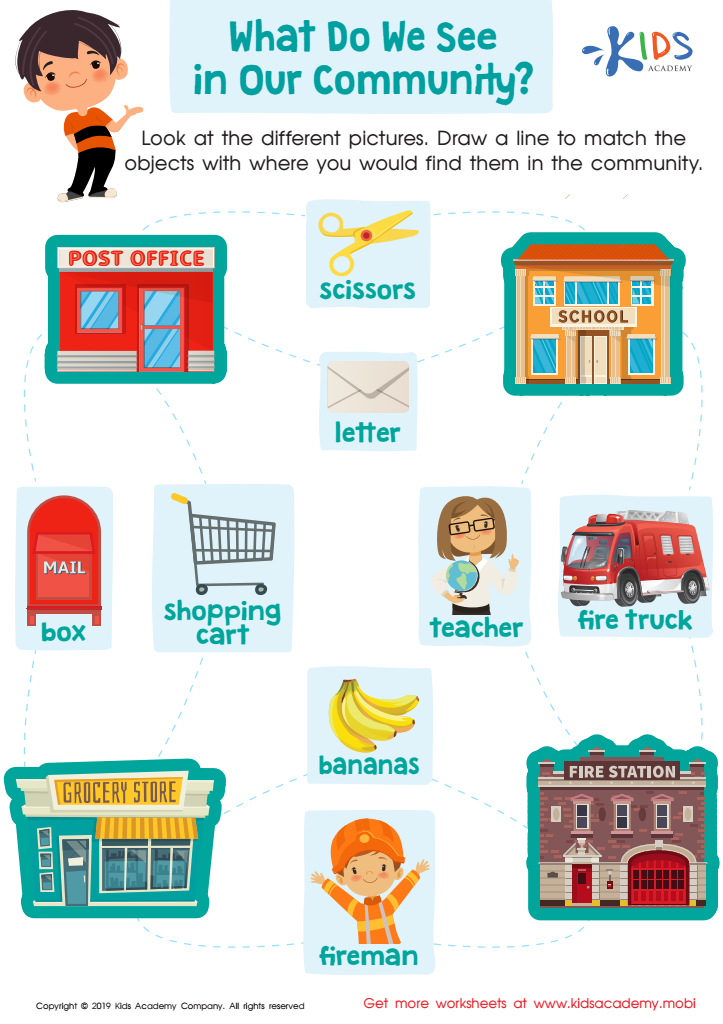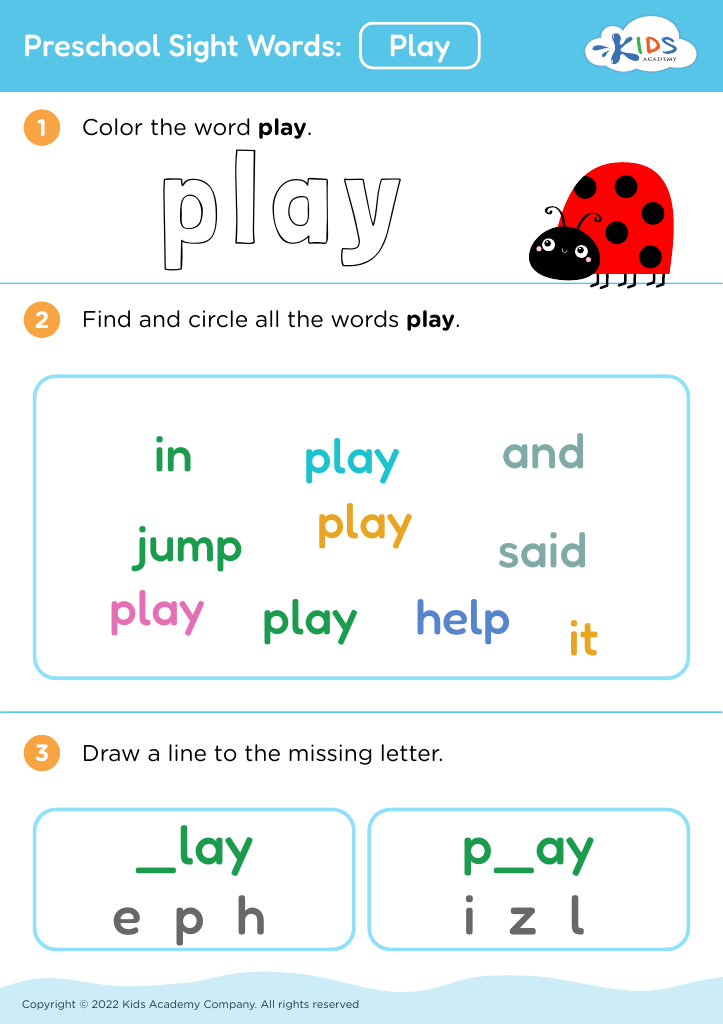Improving reading skills Building Vocabulary Worksheets for Ages 3-4
4 filtered results
-
From - To
Enhance your child's reading journey with our "Improving Reading Skills: Building Vocabulary Worksheets" designed specifically for ages 3-4. These engaging worksheets focus on boosting vocabulary through fun and interactive activities that make learning enjoyable. Each worksheet encourages children to identify words, match pictures, and explore concepts, fostering early language development and comprehension. Parents can easily incorporate these resources into daily routines, ensuring consistent practice while nurturing a love for reading. Start building a strong foundation for your child's literacy skills today with our thoughtfully crafted worksheets that spark curiosity and promote learning through play!


What Do We See in our Community? Worksheet
Improving reading skills and building vocabulary in children aged 3-4 is crucial for several reasons. Early literacy skills serve as the foundation for future academic success. During these formative years, children experience rapid brain development, making them particularly receptive to language acquisition. Engaging them in reading activities exposes them to new words and concepts, enhancing their vocabulary and comprehension skills.
Strong vocabulary not only supports reading ability but also improves communication skills. When children have a richer vocabulary, they are better able to express themselves, build relationships, and engage in meaningful conversations with their peers and adults. This social connection fosters emotional development and boosts self-confidence.
Additionally, early reading and vocabulary-building activities stimulate cognitive skills, such as critical thinking and problem-solving. These skills are essential as children progress through their education, influencing their ability to understand complex subjects later on.
By prioritizing reading and vocabulary development in the early years, parents and teachers provide children with the tools they need to succeed academically and socially. Investing time in reading activities today can lead to lifelong learning habits, a love for reading, and improved academic achievements throughout a child's education.
 Assign to My Students
Assign to My Students

















.jpg)
















